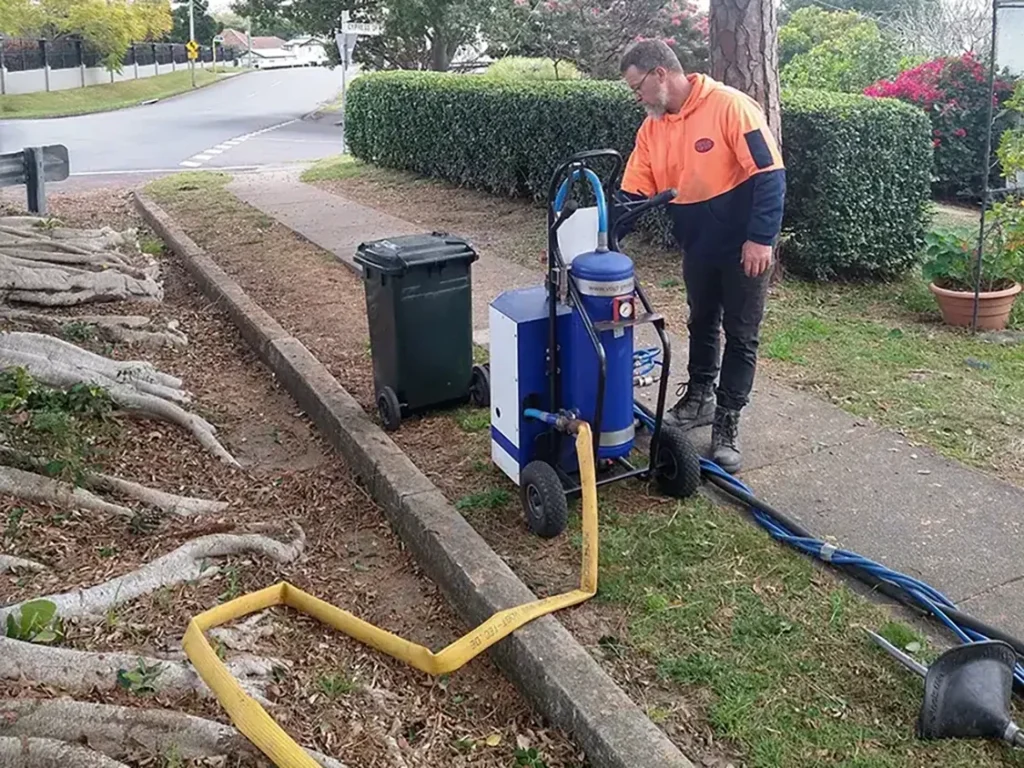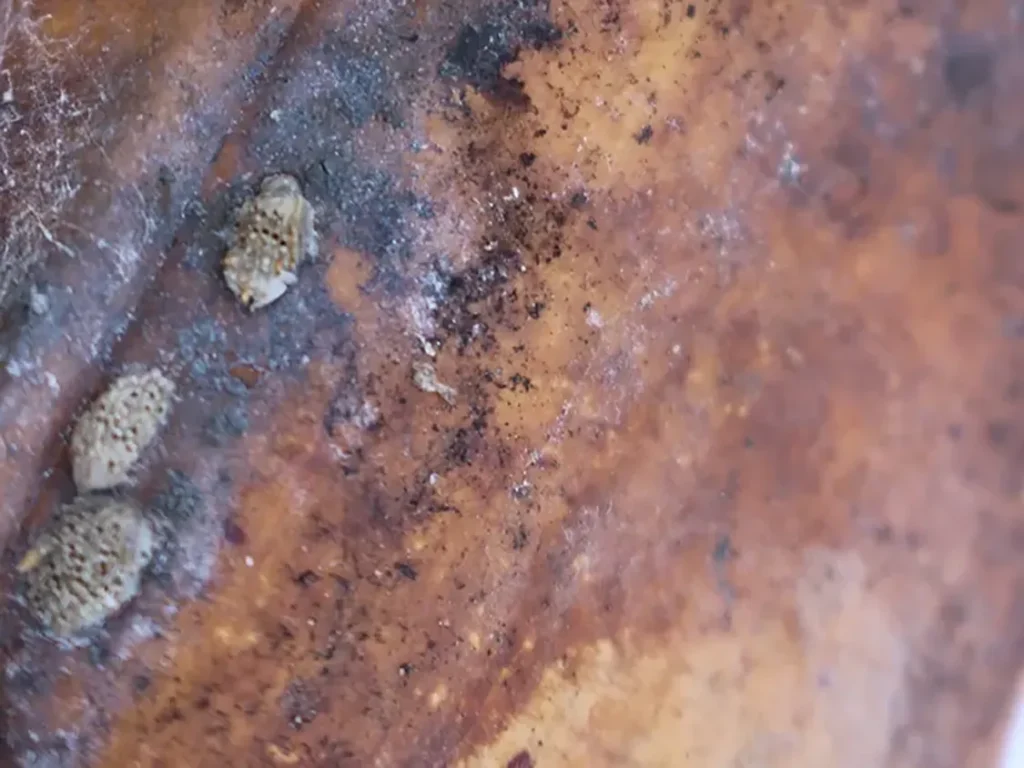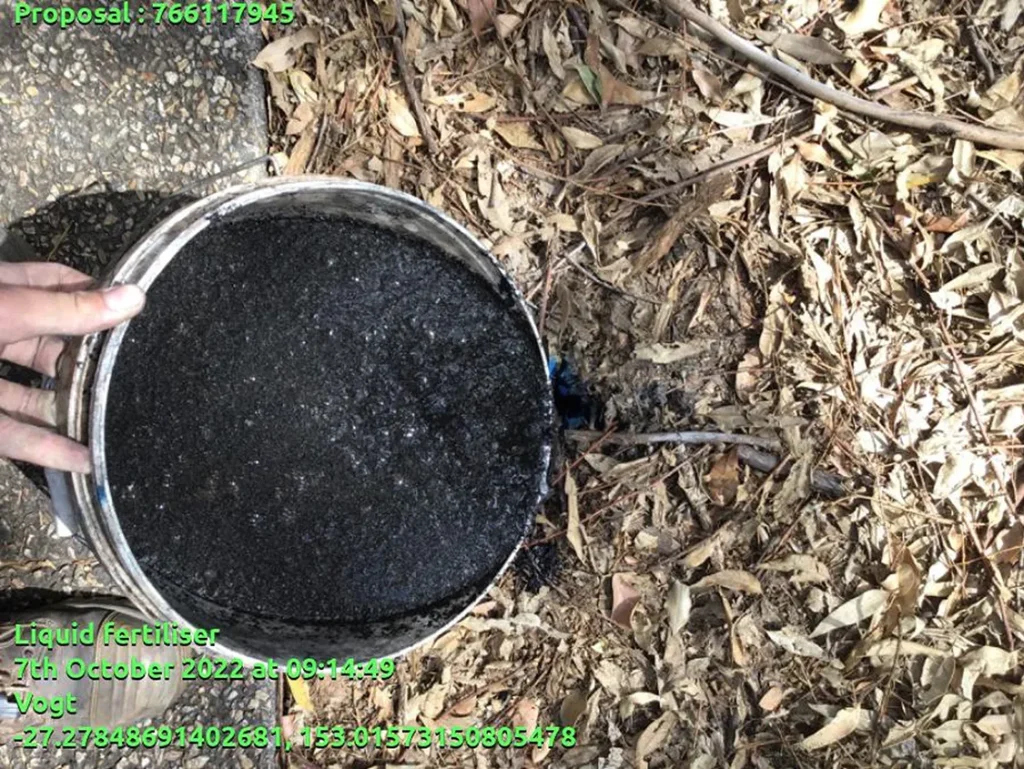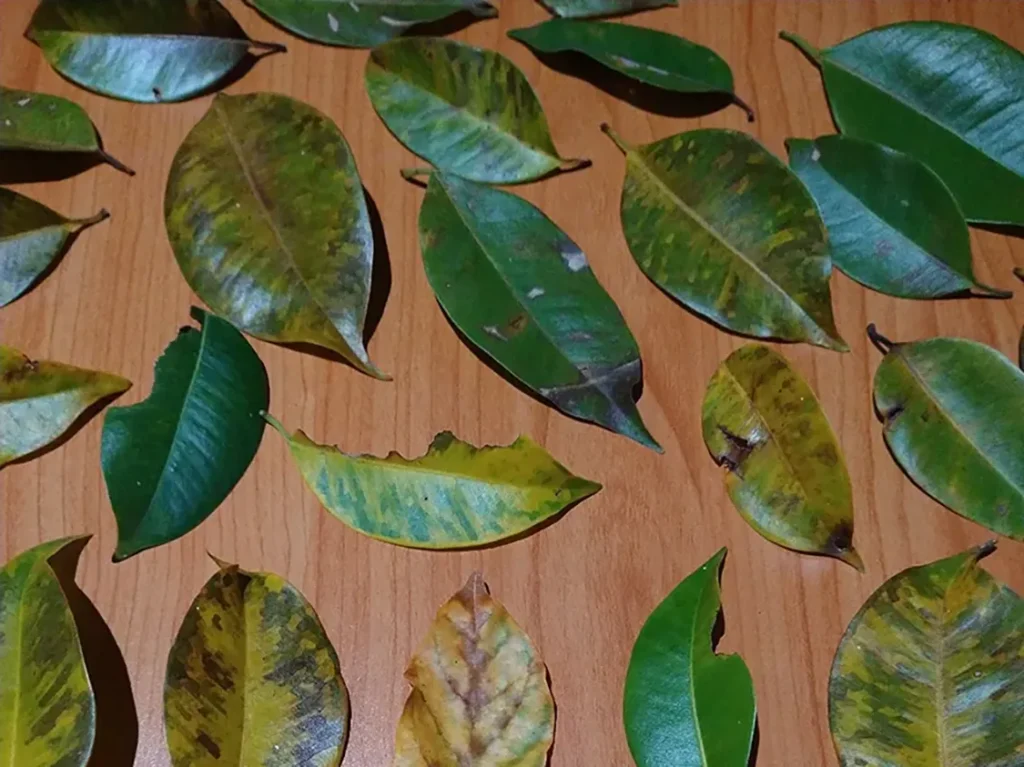
Soil decompaction
Soil compaction is a common problem in urban soils and can lead to reduced soil health and plant growth. Soil compaction occurs when soil particles are compressed, reducing pore space and limiting air and water movement in the soil. This can lead to reduced soil aeration, decreased water infiltration, and limited root growth, ultimately affecting plant health.
One approach to addressing soil compaction is soil decompaction, which involves loosening the soil to restore its natural structure and pore space. Our VOGT pneumatic soil injector is a tool that can help with soil decompaction. It uses deep soil injection of dry mineral soil improvers to aerate the soil and improve its physical properties.
The soil injector works by injecting dry mineral soil improvers into the soil at a depth of up to 12 inches, loosening the soil and improving its structure. The injected material provides space for air and water movement in the soil, promoting root growth and improving plant health. Soil decompaction can be an effective way to address soil compaction and promote healthy soil-plant systems. By improving soil structure and promoting aeration and water movement in the soil, soil decompaction can help plants grow stronger and healthier.
Read more about VOGT
Soil inoculation
We use an aerated compost tea product that is brewed with beneficial soil microorganisms. This product is then used to inoculate depleted soil by root plate injection. Root plate injection involves injecting the compost tea directly into the root zone of plants, where it can establish and promote the growth of beneficial microorganisms.
Compost tea is a liquid solution made from compost, which is a rich source of beneficial microorganisms. These microorganisms can include bacteria, fungi, and other organisms that play important roles in soil health and plant growth. When compost is brewed into a tea, these microorganisms are concentrated and can be used to inoculate soil with beneficial organisms.
By inoculating soil with beneficial microorganisms, we can help restore soil health and promote healthy plant growth. These microorganisms can help break down organic matter, release nutrients for plant uptake, and improve soil structure. In turn, this can lead to stronger, healthier plants that are better able to resist pests and disease.


Nutrition
Our approach to nutrition involves using natural fertilizers that are sourced from organic and sustainable materials. These materials can include compost, manure, and other organic sources of nutrients that are slow-release and provide long-term benefits to the soil.
We analyse the results of soil tests to determine which nutrients are deficient or present in excess in the soil. Based on these results, we develop a custom blend of fertilizers that are designed to meet the specific needs of the site. Our custom blends of natural fertilizers are applied to the soil in a precise manner to ensure that nutrients are distributed evenly and effectively. By addressing nutrient deficiencies and toxicities in this way, we can promote healthy plant growth and reduce the risk of pests and disease.
Monitoring and maintenance
After treatments are applied to the soil, it’s important to monitor the plants and soil to observe the response to the treatments. This allows us to adjust as needed to ensure that the plants are responding positively to the interventions.
During monitoring, we may conduct additional soil and plant tissue tests to evaluate nutrient levels and ensure that the soil is continuing to improve. This information is then used to adjust the application of treatments as needed to optimize soil conditions and plant health.
In addition to monitoring, maintenance through repeated visits is often necessary to restore soil conditions and maintain plant health. This may involve additional soil amendments or the application of natural fertilizers to address any ongoing nutrient deficiencies.
Through regular visits, we can also identify any new issues that may arise and address them proactively before they become larger problems. By providing ongoing care and attention to the soil and plants, we can help ensure long-term health and vitality.

Integrated pest and management (IPM)
Integrated Pest Management (IPM) is an approach that focuses on preventing pest problems before they occur, and using a variety of methods to control pests in a way that is environmentally friendly and safe for wildlife.
Some of the key strategies used in IPM include:
- Monitoring and scouting for pests to detect them early
- Use of physical barriers and exclusion methods to prevent pests from accessing plants
- Encouraging the presence of natural predators and beneficial insects that can help control pest populations
- Use of pheromone traps and other non-toxic methods to attract and trap pests
- Use of targeted, low-toxicity pesticides only when necessary, and only after other methods have been tried and found ineffective.
By using IPM techniques, we can significantly reduce the need to use chemical pesticides, which can have negative impacts on the environment and can harm non-target organisms such as beneficial insects and wildlife. Instead, we can work to create a healthy, balanced ecosystem that naturally helps control pest populations and keeps plants healthy.
